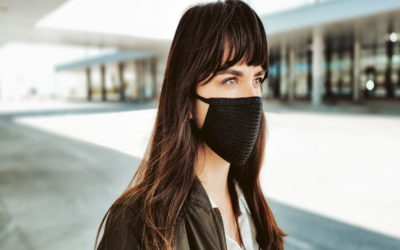New COVID Variant – What Is It?
[the_ad id=”6150″]
As expected, the novel Coronavirus (SARS-CoV-2) has undergone many mutations since it first emerged a year back. But the current variant that is responsible for the rapid increase in COVID-19 cases in some parts of the UK (United Kingdom) has scientists worried. This new strain, called VUI-202012/01 (the first “Variant Under Investigation” in December 2020) or lineage B.1.1.7, was identified to have multiple mutations in the spike protein. Early research suggests that these mutations have made it easy for the virus to spread, making it almost 70 % more transmissible.
We are left wondering if they result in different symptoms with so much not known about this new strain. But the good news is, this variant has not been found to cause more severe symptoms.
Why Is the New Variant More Contagious?
The mutations in the coronavirus spike proteins, which cover the virus’s outer surface and give the spiny appearance, are believed to have made the virus more contagious. At this point, nothing can be said for certain and more studies need to be done to understand the transmissibility of the new strain.
What Are the Symptoms to Look Out For?
So far, the symptoms of the new variant have been similar to the initial strain, but doctors are monitoring the situation closely. Once infected with the new strain, symptoms can appear anywhere from 2 to 14 days, and it can range from mild to severe. The common symptoms include
- Fever
- Cough
- Shortness of breath
- Fatigue or tiredness
- Muscle pain
- Headache
- Loss of taste or smell
- Sore throat
- Runny nose
- Nausea or vomiting
- Diarrhea
Apart from these symptoms, the Centre for Disease Control and Prevention (CDC) has published the following alarming or warning signs for COVID-19:
- Breathing difficulty
- Continuous chest pain
- Confusion
- Inability to stay awake
- Bluish discoloration of lips
These symptoms indicate severe pneumonia and low oxygen levels in the blood and should not be taken lightly. Immediate medical attention is needed.
How to Keep Your Family Safe?
The most efficient way to stop the spread of this new variant and all other future variants is by:
- Wearing a mask.
- Washing your hands with soap and tepid water for at least 20 seconds.
- Staying six feet away from anyone who is not a part of your household.
- Avoiding crowds.
- Avoiding poorly ventilated areas.
There is still no proof that the COVID-19 vaccines will not work against the new COVID variant. But until scientists know for sure, follow preventive measures even if you have already been vaccinated.
Source

